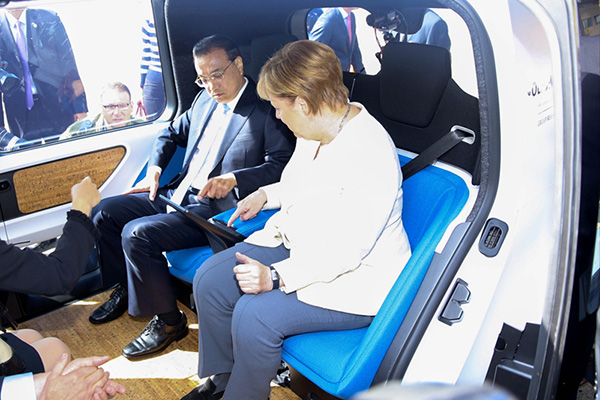
On July 10, Premier Li Keqiang and German Chancellor Angela Merkel sat in an autopilot vehicle produced by both countries, while attending an autopilot cooperation exhibition between the two sides.
Addressing the activity, Merkel said a joint cooperative declaration was just signed, which bears great significance to the automotive industry. “Today is a good day for the future of autopilot, and we hope Germany and China could continue promoting the development of the industry, while holding the lead of cooperation in this field,” she said.
Premier Li said the activity was a “grand finale” for his visit. “More than 20 years ago, German companies took the initiative by cooperating with China in an automobile joint venture,” he said. “I hope you could carry forward the spirit, by expanding investment to China and strengthening cooperation in the high-tech industry, so that we could move toward intelligent R&D from traditional manufacturing in automotive cooperation.”
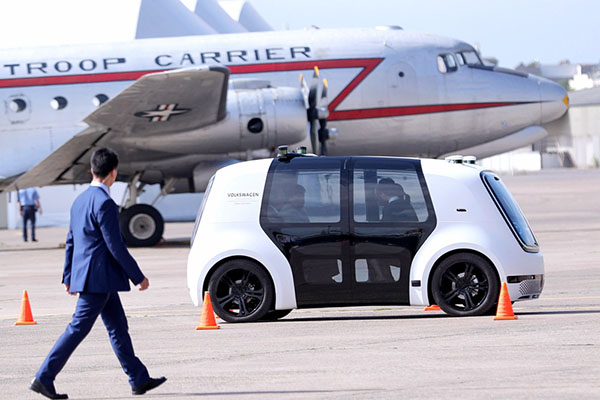
After a trip of smooth driving, they got off the vehicle and exchanged their riding experience.
“Can the vehicle be restored to manual operation? Where is the radar sensor?” the Premier asked.
“Manual operation is also available,” a staff member answered, pointing to a hemispheric object on top of the vehicle. “This is the radar sensor,” he said.
The Premier was told that the sensor adopted Chinese, German and US technologies.
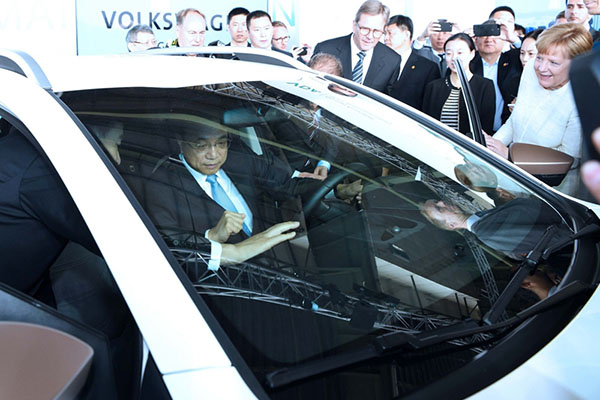
Before that, JAC Volkswagen, a joint venture of Volkswagen Group and Anhui Jianghuai Automobile (JAC), showed the two leaders a battery electric vehicle they produced. According to the German staff, the vehicle’s battery was manufactured by the Chinese company with a range of 300 kilometers, and 5,000 units are produced annually.
Learning that the shareholding ratio between Chinese and German companies is 50:50, the Premier said as China is promoting a new round of opening-up and easing restrictions over the proportion of foreign equity in the automobile sector, German companies can increase their proportion of shares.
The Premier added that German enterprises registered in China will enjoy the same subsidies for new energy vehicles as their Chinese counterparts.
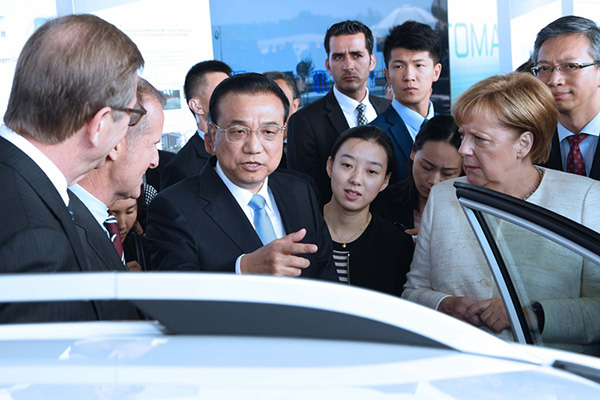
An automated car was running on the road and all of a sudden, a dummy model appeared in front of it. The car immediately slowed its speed at almost the same time when the model showed up, and stopped less than 1 meter away.
The running Mercedes-Benz car was installed with an intelligent mobility system for complicated transportation, which was developed by Tsinghua University, and the scene simulated pedestrians crossing streets, in a bid to test the car’s emergency response, a person in charge from Daimler introduced to Premier Li and Merkel.
Premier nodded, saying that the biggest advantage of the automated driving is safety.
The cooperation with Daimler is to collect information captured by the front and back cameras on the car, and integrate them to let the intelligent system judge the driving situation, and the research was based on driving situation of Chinese roads, a young researcher from Tsinghua University said.
“I believe your cooperation will explore a bigger market in China,” said Premier Li, adding that China is glad to see overseas brands of automated vehicles running in China, and he also hopes China and Germany could cooperate more in economic and technological sectors.
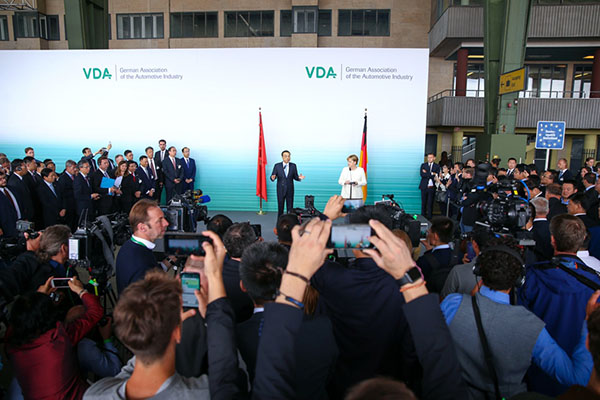
According to a person in charge of the BMW Group, they are cooperating with Baidu, making autopilot experiments in areas with high traffic density.
“I hope you could make more studies on our country’s road conditions, which could provide great variety,” Premier Li responded. He went on to say that he holds high expectations toward autopilot, which should adapt to the complicated environments of people’s daily lives.
To further facilitate cooperation between the two countries, he promised easier market access in China’s automotive industry and more protection on intellectual property rights.
